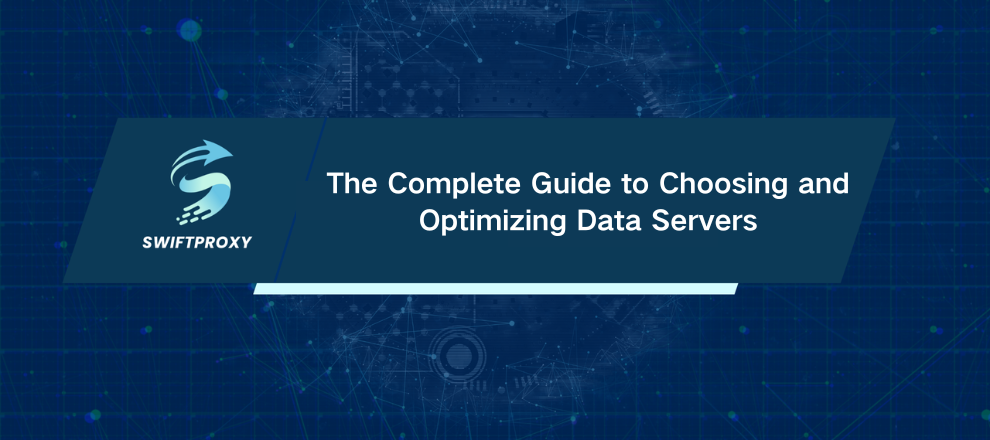The Complete Guide to Choosing and Optimizing Data Servers
Every second, 1.7 MB of data is created every second for every person. Think about that. Behind every click, swipe, and search lies a complex network of data servers powering our digital world. These aren’t just storage units—they’re the engines of modern business. They manage, process, and safeguard data at incredible speeds. Yet, despite their importance, many organizations struggle to choose, configure, or optimize servers to their full potential. This guide cuts through the noise. We’ll break down types of data servers, their core functions, how to select the right one, and strategies to optimize performance.

What Exactly Is a Data Server
At its core, a data server is a specialized computer designed to store, manage, and deliver data. It's a powerhouse: high-speed processors, massive storage units, and robust network connectivity. Its job is simple in theory—store and deliver data—but the efficiency and reliability of that delivery are what separates a good server from a great one.
Picture a data server as a high-tech warehouse. When you load a website or pull a report, the server is the unseen worker ensuring everything arrives quickly and accurately.
Different Types of Data Servers
Data servers aren't one-size-fits-all. Each type is engineered for specific scenarios:
Dedicated Server
A powerhouse reserved for one user or organization. Think lightning-fast processing and consistent performance. Perfect for businesses handling massive traffic or complex computations.
Cloud Server
Virtual and dynamic, cloud servers adjust resources on the fly. They're scalable, flexible, and ideal for businesses with fluctuating data demands.
Virtual Private Server (VPS)
A single physical server split into virtual units. Each VPS runs independently, giving small businesses or startups cost-effective performance without sacrificing security.
Functions of Data Servers
Data servers do more than store information—they keep your operations running smoothly:
Data Storage and Backup: Automated backups protect against unexpected failures.
Efficient Data Processing: Servers manage and process large datasets quickly, enabling real-time insights.
Data Sharing and Access Management: Permissions ensure only authorized users access sensitive data.
Load Balancing: Even under heavy traffic, servers distribute workloads to maintain performance.
Why Business Needs Database Servers
Modern enterprises rely on data, and database servers are the control center. Here's why they're essential:
Centralized Data Management: One platform to store, update, and secure all your data. No scattered spreadsheets or lost files.
Fast, Efficient Access: SQL and other query tools make data retrieval near-instantaneous.
Security and Reliability: Encryption, authentication, and backups safeguard critical information.
Collaboration Made Easy: Teams can access shared data securely and seamlessly.
Supports Decision-Making: Real-time data analysis drives smarter, faster business decisions.
Scalability: As your data grows, the server grows with you—no costly overhauls.
Boosted Data Scraping and Access: Efficient storage and retrieval ensure high-volume scraping operations run smoothly.
How to Find the Right Data Server
Not all servers fit every business. Keep these factors in mind:
Performance Requirements: Heavy computation? Go dedicated. Light workloads? VPS or cloud can suffice.
Budget: Cloud and VPS often provide excellent value for growing businesses.
Security: Sensitive data? Dedicated servers isolate resources for maximum protection.
Scalability: Fast-growing businesses benefit from cloud servers' flexible resources.
Step-by-Step Guide to Setting Up a Data Server
Setting up a server doesn't have to be overwhelming. Follow these steps:
Select Your Server Type: Match it to your traffic, data volume, and budget.
Install an Operating System: Linux or Windows Server are the go-to choices.
Configure Networking and Firewall: Protect your server from unauthorized access.
Configure Storage and Backup: Regular backups and redundancy strategies are non-negotiable.
Enhance Performance: Adjust settings for storage, processing, and network efficiency. Swiftproxy can supercharge your data scraping across regions.
Supercharging Performance with Swiftproxy
For businesses scraping or accessing global data, Swiftproxy is a game-changer. It provides fast, stable network connections and a massive IP network across 195+ countries.
Benefits include:
Worldwide Coverage: Seamlessly collect data from anywhere.
Flexible Setup: Tailor proxy services to your needs.
High Performance: Smooth, uninterrupted scraping and data access.
Using Swiftproxy ensures your servers operate at peak efficiency, no matter where your data resides.
Conclusion
Data servers form the backbone of today's digital infrastructure. Selecting the appropriate type, configuring it correctly, and fine-tuning its performance can significantly enhance business operations. Incorporating tools such as proxies further boosts efficiency, allowing for faster, more reliable, and secure data management.

















































